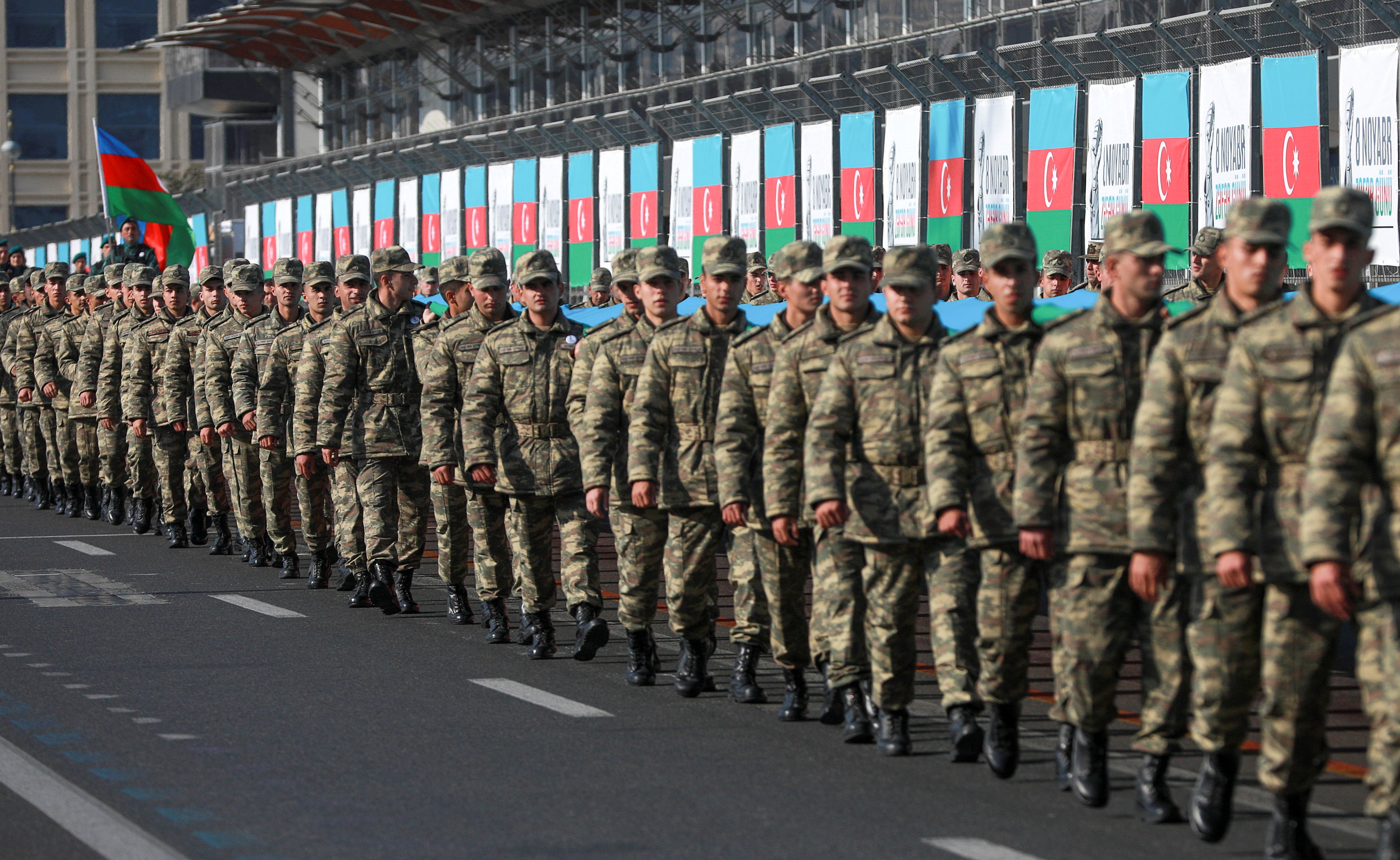Armenia announces ceasefire with Azerbaijan after border clashes kill more than 20 troops
Armenia and Azerbaijan report deaths of several troops in worse clashes since 2020 war

Your support helps us to tell the story
From reproductive rights to climate change to Big Tech, The Independent is on the ground when the story is developing. Whether it's investigating the financials of Elon Musk's pro-Trump PAC or producing our latest documentary, 'The A Word', which shines a light on the American women fighting for reproductive rights, we know how important it is to parse out the facts from the messaging.
At such a critical moment in US history, we need reporters on the ground. Your donation allows us to keep sending journalists to speak to both sides of the story.
The Independent is trusted by Americans across the entire political spectrum. And unlike many other quality news outlets, we choose not to lock Americans out of our reporting and analysis with paywalls. We believe quality journalism should be available to everyone, paid for by those who can afford it.
Your support makes all the difference.Armenia has announced a ceasefire with Azerbaijan after clashes at their border left more than 20 dead.
The two former Soviet nations blamed each other for the deadliest fighting since a war last year over the separatist region of Nagorno-Karabakh.
The clashes ceased late on Tuesday after Russian Defense Minister Sergei Shoigu spoke on the phone with his Armenian and Azerbaijani counterparts and urged them to stop.
Yerevan had earlier asked Moscow for support, and Armenian Prime Minister Nikol Pashinyan also discussed the situation with Russian President Vladimir Putin.
Armenia said at least 15 of its soldiers were killed in the fighting on Tuesday, and that about a dozen had been captured. Azerbaijan put its troop death toll at seven and said another 10 were injured.
The Armenian Defense Ministry said Azerbaijan‘s army had opened fire on its positions, while the Azeri government accused Armenia of a "large-scale provocation" on the border.
The two nations have been locked in a decades-old dispute over Nagorno-Karabakh, a region that lies within Azerbaijan but was under the control of ethnic Armenian forces backed by Armenia since a separatist war there ended in 1994.
Moscow brokered a peace deal last November to end six weeks of fighting over the territory which killed more than 6,600 people and ended in a victory for Azerbaijan.
The Russia-brokered truce allowed Azerbaijan to reclaim control over large parts of Nagorno-Karabakh and surrounding areas that the Armenia-backed separatists controlled.
Tensions on the Armenia-Azerbaijan border have been growing since May, when Yerevan protested what it called an incursion by Azerbaijani troops into its territory. Baku has insisted that its soldiers were deployed to what it considers its territory in areas where the border has yet to be demarcated.
Skirmishes have been reported ever since, but Tuesday’s fighting was the deadliest this year.
European Council President Charles Michel said on Tuesday that he had spoken to both Mr Pashinyan in Armenia and Azerbaijani leader Ilham Aliyev of Azerbaijan and called for a full ceasefire, without blaming either side for the “challenging situation in the region”.
France‘s French foreign ministry also said it was very concerned about the deteriorating situation and called on both countries to respect a ceasefire.
The conflict dates back to when ethnic Armenian separatists in Nagorno-Karabakh broke away from Azerbaijan as the Soviet Union collapsed. The ensuing war claimed about 30,000 lives.
Additional reporting by agencies



Join our commenting forum
Join thought-provoking conversations, follow other Independent readers and see their replies
Comments